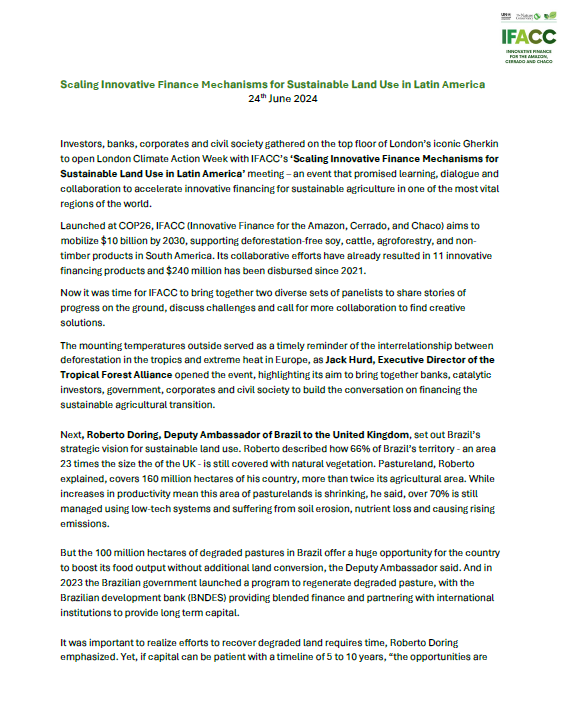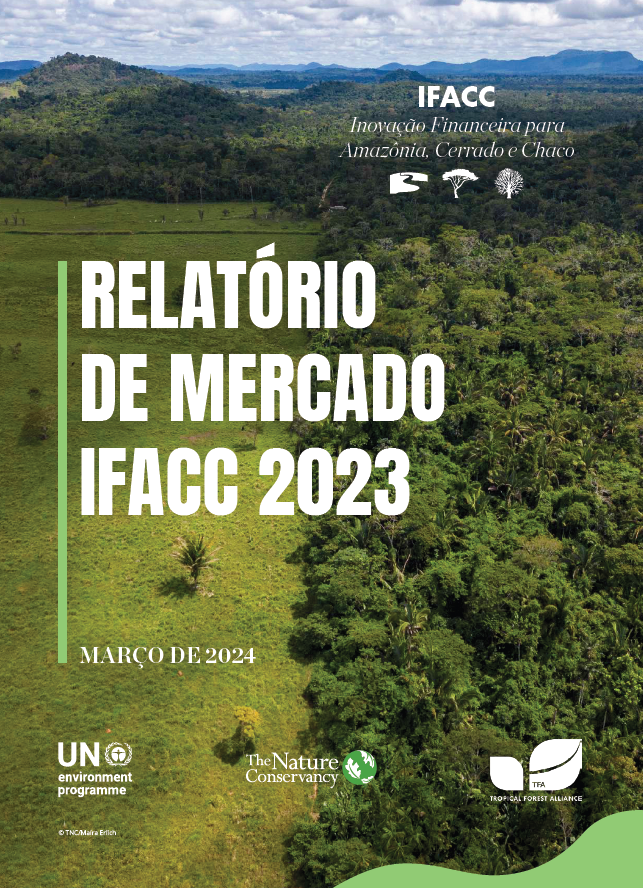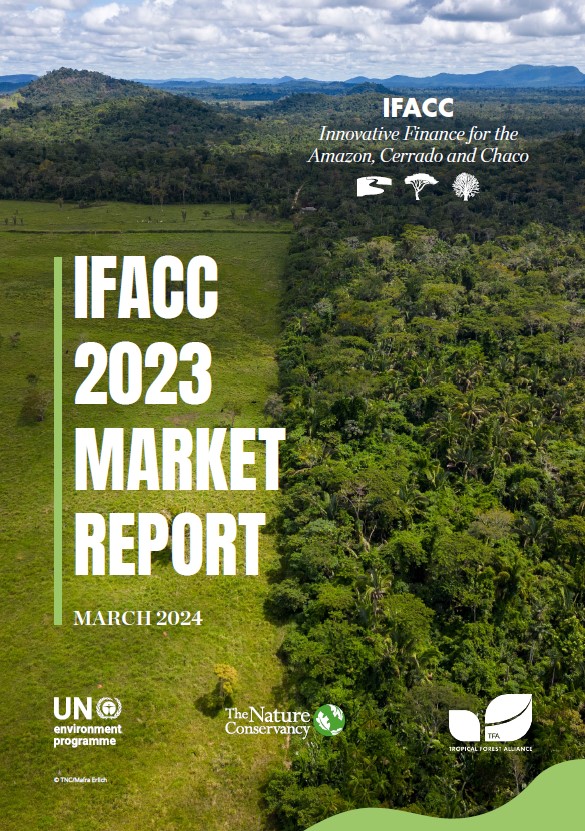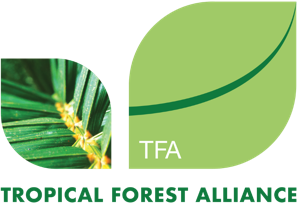IFACC’s first training targeted Brazilian professionals from financial institutions (asset managements, commercial, investment and development banks, and pension funds), as well as regulatory and supervisory bodies of the Brazilian financial system interested in aligning loans and investments for sustainable agriculture in the country.
The training was successfully given to 47 professionals from the Brazilian financial system, from 13 different organizations.
The training was held throughout 4 weeks in October and the modules comprised:
- Setting the scene: rationale for innovative financial
mechanisms
- Making the case: investments with high socio-environmental
impact
- Structuring mechanisms: the different approaches
- Launch to market: putting the content learned into practice
Each module had theoretical and practical content, allowing participants to understand how the concepts are applied at work.
The first module (“Setting the stage: rational for innovative finance mechanisms”) gave an introduction, explaining the differences between a traditional mechanism and an innovative finance mechanism, the conditions that justifies the use of innovative finance mechanisms in the agriculture sector, what are the main challenges, and what are the opportunities.
The second module (“Making the case: investments with high development impact”) detailed how to develop a mechanism since its inception, explaining how to elaborate the development impact thesis, the minimum requirements that should be demanded in an innovative finance mechanism, and how to track the impact using available monitoring frameworks or customizing one.
The third module (“Structuring mechanisms: the different approaches”) detailed how to structure a mechanism, explaining the different types of innovative finance mechanisms structures, the step-by-step processes to structure, the approach to fundraising catalytical capital, and how to map the stakeholders needed to be involved.
Lastly, the fourth module (“Launch to market: putting the content learned into practice”) was a day to put in practice the lessons learned. The participants were divided in groups up to ten people and each group had to do one of the two exercises that were presented, aiming to develop an innovative financial mechanism that would enable sustainable agriculture production and deforestation and conversion free in soy or cattle market.
To better illustrate the theoretical knowledge, guest speakers were invited to present best practices, their experiences and lessons learned.
One of the guest speakers was Carlos Ortiz, Senior Associate at Centrec Consulting Group. Mr. Ortiz presented the challenges and opportunities of financing sustainable agriculture, drawing on a series of interviews with professionals of the commercial department of agribusiness financing banks.
Another guest speaker was Carolina da Costa, Partner at Mauá Capital. Mrs. Costa presented the lessons learned to structure an innovative financial mechanism, highlighting how to prepare the impact thesis and monitor the impact indicators. Still, Ms. Costa highlighted the importance of the role of companies in the soy and meat chains as drivers of financing for sustainable agriculture.


.png)



